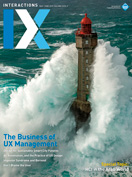Authors:
Dennis Siegel, Joran van der Sluis, Wessel Fletterman, Mark Zwart, Lewis Hornby, Jordan Hamilton, Liam Stephenson
We are surrounded by electromagnetic fields, both natural and artificial. Many are created as by-products of our appliances and electrical infrastructure. Some can be transformed into usable current by means of coils and high-frequency diodes.
The Electromagnetic Harvester is designed to tap into electromagnetic fields to charge a regular battery. You can capture energy from a toaster, cellphone, or overhead wire by holding the Harvester directly into the source's electromagnetic field. By exploiting these sources, it creates an awareness of the invisible electromagnetic space while also giving it a spatial dimension.
http://dennissiegel.de/works/electromagnetic-harvester/
Vanhemert, K. A tiny box that charges AA batteries from electromagnetic felds. Fast Company. Jan. 23, 2013;
https://www.fastcompany.com/1671670/a-tiny-box-that-charges-aa-batteries-from-electromagnetic-fields
Yirka, B. German student builds electromagnetic harvester to recharge a battery. Phys.org. Feb 12, 2013; https://phys.org/news/2013-02-german-student-electromagnetic-harvester-recharge.html
Dennis Siegel
[email protected]
 |
Energy-harvesting farms around transformer stations. |
App een Oma is a digital mailbox that instantly translates digital messages into physical postcards and vice versa. Handwritten letters are scanned and sent to the right person through an address stamp; text messages come out as printed postcards. Our aim is to bridge the gap between traditional correspondence and digital communication, thereby increasing the accessibility of digital services for user groups that have difficulties using modern human-machine interfaces.
Joran van der Sluis, Wessel Fletterman, and Mark Zwart, University of Twente and Estis Design
[email protected]
 |
A digital mailbox helps bridge the gap between traditional and digital correspondence. |
Jelly Drops are hydrating treats that empower people with dementia to hydrate more often, and independently. This is a crucial need, as one third of all dementia deaths can be attributed to dehydration. A number of reasons cause people dealing with dementia to stop drinking, such as no longer being aware of thirst. Therefore, we developed a solid form of hydration that could be disguised as a sweet. It is based on the observation that many dementia patients find eating with their hands intuitive and can recognize the form of a chocolate box. This triggers a familiar interaction, and further promotes social interaction between carers and residents.
https://www.youtube.com/watch?v=eXZnTGsWSTk
Jelly treats for people with dementia. BBC News. Sept. 20, 2018; https://www.bbc.co.uk/news/av/health-45579586/jelly-treats-for-people-with-dementia
Richman-Abdou, K. Man creates edible water "jelly drops" to help dementia patients stay hydrated. My Modern Met. Aug. 23, 2018; https://mymodernmet.com/lewis-hornby-jelly-drops/
Lewis Hornby
[email protected]
 |
Jelly Drops empower people with dementia to hydrate more often. |
Emitts is a unique smart glove that aims to make electrical work safe and simple.
Emitts is a unique smart glove that aims to make electrical work safe and simple. It has four features: magnet, wire detection, charge, and light. Fitted with digital electrical sensors, the glove can detect wires, which are illuminated and displayed on OLEDs. Electromagnets allow the user to pick up small screws and wires safely and store them in a convenient pocket. Digital multimeter technology provides information that is sent via Bluetooth to the companion application. The application allows the user to control the settings and displays information regarding voltage, currents, and resistance.
http://jordanhamiltondesigns.co.uk/portfolio/emitts/
Jordan Hamilton
[email protected]
Liam Stephenson
[email protected]
 |
Emitts companion application. |
 |
Front of Emitts prototype showing buttons for its four functions. |
 |
Prototype of Emitts OLED screen used in wire detection. |
©2019 ACM 1072-5520/19/05 $15.00
Permission to make digital or hard copies of all or part of this work for personal or classroom use is granted without fee provided that copies are not made or distributed for profit or commercial advantage and that copies bear this notice and the full citation on the first page. To copy otherwise, to republish, to post on servers or to redistribute to lists, requires prior specific permission and/or a fee.
The Digital Library is published by the Association for Computing Machinery. Copyright © 2019 ACM, Inc.








Post Comment
No Comments Found